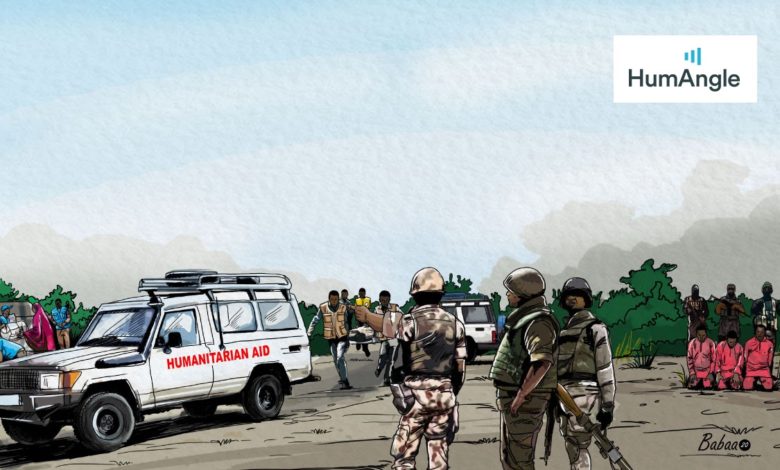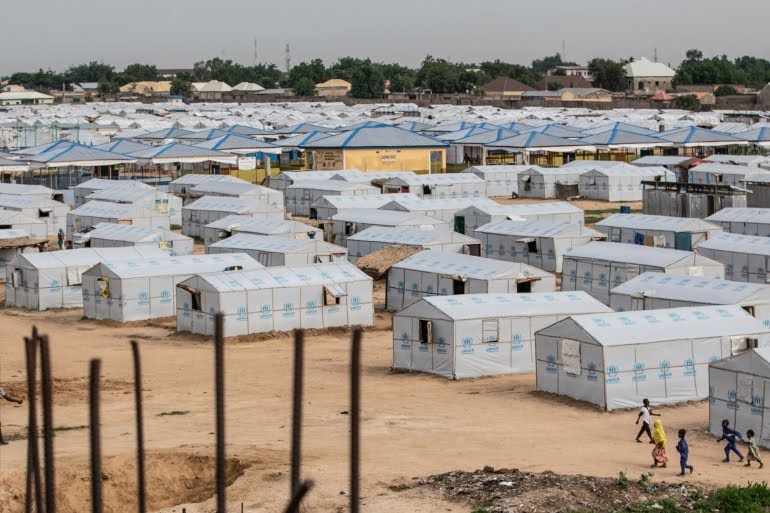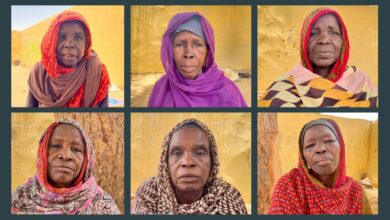Humanitarian Workers In Northeast Face Misinformation, Conspiracy Epidemic – Special Report

Misinformation and a conspiracy epidemic continue to pose a threat to the providers of humanitarian assistance in Northeast Nigeria. This has not only slowed delivery of badly needed aid, but has contributed to the bringing of humanitarian work to a halt in some areas.
Since 2009, is Jamā’at Ahl as-Sunnah lid-Da’wah wa’l-Jihād commonly known as Boko Haram and the Islamic State West Africa Province (ISWAP) have engaged in a campaign of violence that has led to at least 30,000 deaths, displaced over two million and left about 10 million people in need of humanitarian assistance.
The inability of the government to manage the humanitarian crisis and alleviate the suffering led to an emergence of local and international non-governmental organisations (NGOs) filling aid gaps and providing critical medical care, relief materials, shelter and resilience support programmes to victims and vulnerable populations.
HumAngle learned that the operation of these organisations has had an economic ripple effect, ranging from stimulating cash flow, employment opportunities, professional skill development and regeneration of local businesses.
However, the operations of NGOs continue to be shadowed by disturbing narratives, fabricated stories and misinformation shared in various communities and more recently on digital spacesㅡsometimes by people fatigued with the prolonged conflict and others who don’t trust foreign donors or NGOs.
Humanitarian organisations are, for example, accused of securing housing contracts for five years and beyond, implying the violence, which they are addressing, will not end soon.
In some cases, disinformation and misinformation campaigns are propagated by online trolls, propaganda channels and questionable associations shifting the blame for the conflict to NGOs.
More worrisome is the trend that sees top government officials and politicians making unsubstantiated claims against INGO and NGOs in both private and public functions.
During a press briefing at the National Assembly in October 2019, Ali Ndume, the chairman of the Senate Committee on Army, claimed there was evidence that NGOs in Borno state were aiding the operations of Boko Haram.
Insurgents, on their part, are also circulating unsubstantiated claims that NGOs are working hand-in-hand with governments and are in the region to convert Muslims to Christianity. These are gaining momentum and brewing violent reactions against humanitarian workers.
Such claims have encouraged attacks and prohibition of humanitarian workers and facilities.
Over the past few years, several Twitter handles have shared posts accusing NGOs of undermining the fight against terror groups.
A Twitter user with the name PostmasteGen recently claimed an NGO was shielding Boko Haram and sponsoring terrorism.
https://twitter.com/PostMastaGen/status/1304076293181452296?s=19
While in August, another user, Defense Nigeria, whose name shares a resemblance to that of the Twitter handle of the Defence Headquarters, in a thread claimed NGOs were supporting Boko Haram. The same account in previous tweets, including a now-deleted video shared in a post, claimed an NGO was caught sharing aid to Boko Haram in a forest.
In October 2019, the picture of an ID card recovered from a dead insurgent was widely circulated as proof of NGOs supporting insurgents. The real story was later shared online of how an aid worker lost his identification card following an insurgent attack and subsequently reported the incident to the police.
Apart from Facebook and Twitter, it’s becoming a common occurrence to read stories shared on WhatsApp groups connecting NGOs and the conflict.
In August, an organisation called the Centre for African Liberation and Socio-Economic Rights claimed that some human rights groups and some foreign non-governmental organisations were behind the elongation of the Boko Haram crisis in Nigeria. A similar statement was made in 2019 by the Coalition for Civil Rights and Good Governance.
Amnesty International has described the group “Centre for Africa Liberation and Socio-Economic Rights” as faceless and unknown.
HumAngle in May fact-checked a claim published on Opera News, and circulated widely on WhatsApp, that Abubakar Shekau’s faction of Boko Haram was in disarray after it received a donation of five million euros from an NGO.

A series of incidents between the government, army and some humanitarian actors have helped amplify this problem faced by the sector.
This includes an accusation of providing logistics support to terrorists and shutting down of offices and operations of organisations such as Mercy Corps, United Nations International Children’s Emergency Fund, and Action Against Hunger.
Former Borno State governor, Kashim Shettima, established a committee to scrutinise NGOs, following concerns raised by the theatre commander coordinating the operation against insurgents.
The committee’s mandate was to look into sources of funding, the profile of staff, and to determine whether or not they were duly registered by the relevant federal and state authorities.
In August 2017, Nigerian troops carried out a pre-dawn raid and forced their way into the United Nations compound in Maiduguri, the capital of Borno State.
“Members of the Nigerian security forces entered a United Nations base for humanitarian workers in Maiduguri … without authorisation,” said Samantha Newport, a spokeswoman for the UN Office for the Coordination of Humanitarian Affairs.
The army did not give the reasons for the raid or announce any further investigation. The incident left behind unanswered questions and promoted an environment of suspicion around International aid actors.
Various international bodies such as the United Nations Office for the Coordination of Humanitarian Affairs (OCHA), European Commission, and International Committee of the Red Cross (ICRC) recognise impartiality and neutrality as one of the key humanitarian principles that must be respected during armed conflict.
According to OCHA, “Humanitarian actors must not take sides in hostilities or engage in controversies of a political, racial, religious or ideological nature.” This may partly explain why the activities of aid workers are misunderstood by civilians and state actors.
The management of public perception, trust and understanding of NGOs’ role in the conflict using a variety of engagement tools and platforms has therefore become increasingly important, especially at a time when humanitarian hubs and workers continue to endure a wide range of threats from insurgents.
Using existing mediums where conspiracies and rumours are circulated to shape alternative narratives to dismantle and discredit them is important to protect humanitarian actors and also address emerging disinformation trends in the digital space.
Support Our Journalism
There are millions of ordinary people affected by conflict in Africa whose stories are missing in the mainstream media. HumAngle is determined to tell those challenging and under-reported stories, hoping that the people impacted by these conflicts will find the safety and security they deserve.
To ensure that we continue to provide public service coverage, we have a small favour to ask you. We want you to be part of our journalistic endeavour by contributing a token to us.
Your donation will further promote a robust, free, and independent media.
Donate Here




